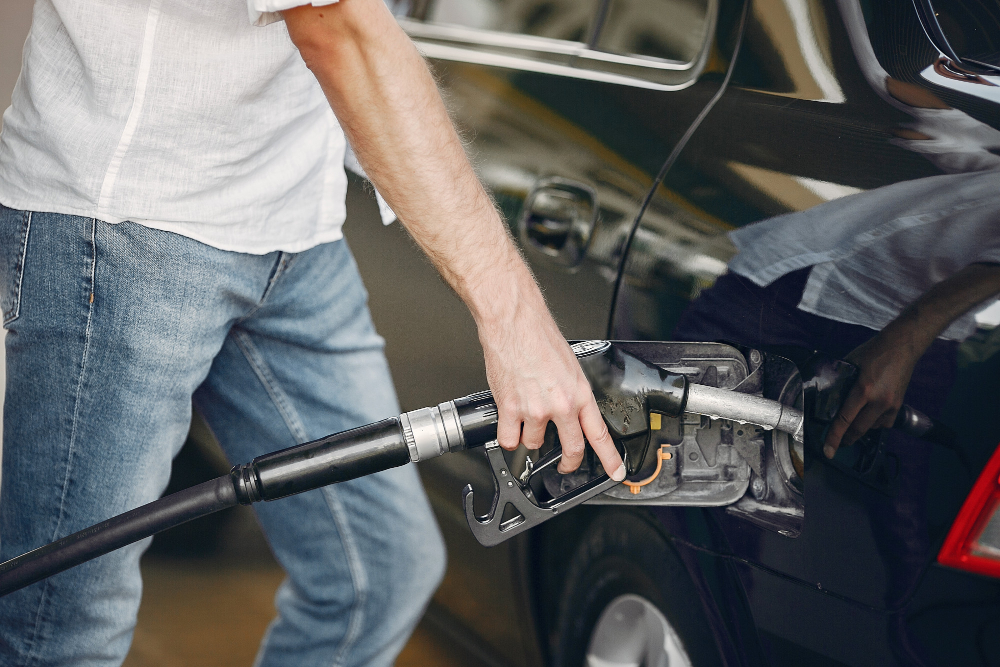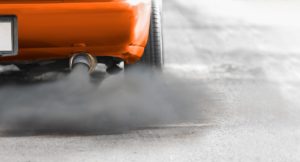Running out of gas is one of those frustrating and often avoidable mishaps that can turn a smooth drive into a major inconvenience. Imagine you’re navigating the vibrant streets of St. Louis, perhaps on your way to an important meeting or a weekend getaway, when suddenly your car sputters and comes to a halt. Stranded, you wonder how this could have happened. At Reliable Guys Towing Service, we’ve seen countless drivers find themselves in this exact situation, and we’re here to help you prevent it.
This article will explore the most common reasons why drivers run out of gas and provide practical tips to ensure you’re never left stranded with an empty tank. By understanding these common pitfalls and learning how to avoid them, you can keep your journeys smooth and worry-free. For immediate roadside assistance, don’t hesitate to call us at (314) 325-1016.
Table of Contents
Toggle1. Misjudging Fuel Gauge Accuracy
Understanding Your Fuel Gauge
Fuel gauges aren’t always as trustworthy as we’d like. They’re designed to give a general idea of how much fuel is left in the tank, but they’re not always precise. Variables such as the angle of the car, the age of the vehicle, and even temperature changes can affect the reading.
Common Inaccuracies
Over time, the fuel sending unit, which measures the level of fuel in the tank, can wear out or malfunction. This can lead to inconsistent readings. Additionally, some fuel gauges may show “full” for a longer time and then quickly drop once the fuel level decreases. This can give drivers a false sense of security about how much fuel they actually have.
Tips to Better Interpret Your Fuel Gauge
Instead of relying solely on the fuel gauge, get into the habit of filling up when your tank is about a quarter full. This buffer can save you from unexpected stops and stress. Also, familiarize yourself with your vehicle’s average fuel consumption to help gauge how far you can go before needing to refuel. Pay attention to how your fuel gauge behaves over time to recognize any unusual patterns.
2. Overestimating Fuel Efficiency
Factors Affecting Fuel Efficiency
Several factors can cause you to overestimate your vehicle’s fuel efficiency. Things like stop-and-go traffic, driving uphill, carrying heavy loads, and even aggressive driving can all decrease fuel efficiency. Using air conditioning and driving at higher speeds can also consume more fuel than you might expect.
Realistic Expectations
Calculate your car’s fuel efficiency by tracking miles driven and gallons used over several refills. This data will give you a realistic baseline to work from. Remember, manufacturers’ claims are often based on ideal conditions, which rarely match real-world driving scenarios. Use apps or onboard diagnostics to monitor real-time fuel consumption.
3. Ignoring Low Fuel Warnings
Psychological Reasons
Sometimes, we ignore the low fuel warning light because we’re just too busy or think we can stretch it a bit longer. It’s easy to fall into the “it won’t happen to me” mindset, but this can lead to being stranded. Some drivers also believe that they know their cars well enough to risk it, which isn’t always true.
Developing Good Habits
When that low fuel warning light comes on, make it a habit to refuel as soon as possible. Don’t wait for the light to come on to think about refueling; plan your stops ahead of time. Consider making a rule for yourself to always fill up when your tank reaches a certain point, like one-quarter full.
4. Running Out of Gas in Unfamiliar Areas
Lack of Knowledge
Driving in unfamiliar areas can increase the risk of running out of gas. You might not know where the nearest gas station is or how far away it might be. This can be especially problematic on long road trips or in rural areas where gas stations are few and far between.
Tools and Apps
Make use of GPS and fuel station locator apps to find the nearest gas station quickly. When planning a long trip, map out your route and note down gas stations along the way. Also, consider downloading offline maps in case you lose internet connectivity.
5. Emergency Situations and Fuel Management
Unexpected Delays
Traffic jams, road construction, and detours can drain your fuel faster than you expect. These unplanned stops can quickly turn a manageable situation into an emergency. Weather conditions such as snowstorms or heavy rain can also lead to increased fuel consumption and unexpected delays.
Preparing for Emergencies
Always keep a portable gas can in your vehicle. It’s also wise to know where you can get fuel in an emergency, such as truck stops or 24-hour gas stations. Additionally, maintaining a small emergency kit with essentials like water, snacks, and a blanket can be beneficial if you’re stuck for a while.
6. Forgetting to Refuel Regularly
Busy Lifestyles
Our hectic schedules can sometimes lead us to neglect refueling. Between work, errands, and social commitments, it’s easy to let the gas tank dip lower than it should. When you’re constantly on the go, it’s not uncommon to push refueling to the bottom of your to-do list, only to remember it when it’s almost too late.
Creating a Routine
Incorporate refueling into your regular routine. For instance, make it a habit to fill up every Sunday or after every few days of commuting. Choosing a regular gas station can also streamline the process, saving you time and stress.
7. Vehicle Maintenance and Its Impact on Fuel Levels
Regular Maintenance Checks
Keeping your vehicle in good condition is crucial not just for safety, but also for fuel efficiency. Regular maintenance checks can help identify issues that may cause your car to consume more fuel. For example, a clogged fuel filter or a malfunctioning oxygen sensor can lead to increased fuel consumption.
Tire Pressure and Fuel Economy
Underinflated tires can significantly affect your vehicle’s fuel efficiency. When tires are not properly inflated, it increases the rolling resistance, which means your engine has to work harder and consume more fuel. Regularly checking your tire pressure and keeping it at the recommended level can help improve your fuel efficiency and prevent unexpected trips to the gas station.
8. Driving Behavior and Fuel Consumption
Aggressive Driving
Aggressive driving habits, such as speeding, rapid acceleration, and hard braking, can drastically reduce your fuel efficiency. These behaviors cause your engine to work harder and consume more fuel than smooth, consistent driving.
Efficient Driving Tips
Adopting a more relaxed driving style can help you save fuel. Try to maintain a steady speed, use cruise control on highways, and avoid heavy acceleration and braking. Additionally, removing excess weight from your vehicle and avoiding unnecessary idling can help improve your fuel efficiency.
Conclusion
Understanding why drivers commonly run out of gas can help you avoid these pitfalls. From misjudging your fuel gauge to overestimating your car’s efficiency, being aware of these issues is the first step towards prevention. By adopting good habits, using technology to your advantage, and maintaining your vehicle properly, you can minimize the risk of running out of gas. And when emergencies strike, Reliable Guys Towing Service is just a phone call away. Stay safe, plan ahead, and keep our number ha8ndy: (314) 325-1016. Your journey should be smooth and worry-free.


